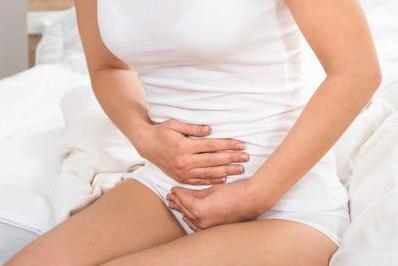Is It Normal for Patients With Endometriosis to Have No Pain?
The most typical symptom of endometriosis is secondary dysmenorrhea, which gradually aggravates with the progress of local lesions. The painful areas are mostly the deep part of the lower abdomen and the lumbosacral area. They can radiate to the perineum, anus, and thighs.

Some patients also have symptoms of rectal irritation, manifested as loose stools and increased stool frequency. The degree of pain is not necessarily proportional to the size of the lesion. Some patients show that the time of abdominal pain is not synchronized with menstruation. Some patients have abdominal pain for a long time, forming chronic pelvic pain, which intensifies during menstruation. However, some patients say they even do not feel pain. Is this normal? Let's discuss it together.
Whether endometriosis is painful during non-menstrual periods depends on the extent of the lesions involved in endometriosis. If the affected area is in the uterine rectal fossa, it is very likely to cause more severe and persistent pain in the future. Because this location is relatively closed and relatively superficial, especially under deep sexual intercourse. If endometriosis is a relatively mild ectopic, it is possible that only ultrasound can be used to detect ovarian endometriotic cysts. But usually there will be no obvious dysmenorrhea or other discomforts.
In addition, there is adenomyosis. Adenomyosis is caused by endometriosis to the interstitium and myometrium. In this case, it will cause dysmenorrhea that gradually worsens over time. Therefore, the pain during the non-menstrual period may also caused by the pathology of the myometrium, which leads to continuous and severe pain. So, whether endometriosis is painful depends on many factors such as the extent and severity of the lesion.
According to the location and severity of endometriosis, 27% to 40% of patients have no dysmenorrhea. However, secondary pain and progressive exacerbation are typical manifestations of endometriosis. Endometriosis refers to the appearance of endometrial tissue in other parts of the uterine muscularis and the uterine cavity covering the endometrium. The main symptoms of the patient are menstrual abnormalities and abdominal pain.
Pains in endometriosis can be manifested as:
1. Secondary aggravated dysmenorrhea. Women of childbearing age did not have dysmenorrhea before, but recently experienced abdominal pain that accompanying the menstrual cycle will more severe than ever. So endometriosis should be vigilant. The pain is often located in the lower abdomen, lumbosacral area, perineum, anus, etc.
2. Chronic pelvic pain. Patients with endometriosis often have dysmenorrhea, lower abdominal pain, and dyspareunia. Long-term lower abdominal pain can cause chronic pelvic inflammatory disease and then cause chronic pelvic pain.
3. Acute abdomen. When a large cyst ruptures, severe abdominal pain will occur, which is often accompanied by nausea and vomiting. This situation is critical and requires surgery as soon as possible.
In addition to pain, endometriosis often causes infertility, painful intercourse, and menstrual abnormalities. It should be noted that ectopic endometrial tissue can appear in any part of the human body, and will accompany the menstrual cycle with varying degrees of pain and bleeding. If the intestine is violated, it will cause periodic diarrhea or constipation with a small amount of bleeding.
Therefore, endometriosis needs treatment. A safe and effective choice is herbal medicine Fuyan Pill. It can eliminate all symptoms caused by endometriosis without side effects. More importantly, it can clean up the uterine environment, improve the chance of pregnancy.
Actively cooperate with the doctor for examination and treatment, so that the condition can recover as soon as possible and avoid more serious consequences.
You may also be interested in:
Frequent Dysmenorrhea? Watch out Endometriosis!
previous pageThe Best Sleeping Position for Endometriosis Patients
next page
You may also be interested in
- Endometriosis and Debilitating Bowel & Bladder Pain: Diagnosis, Treatments, and Hope for Relief
- Struggling with Endometriosis Symptoms? Proven Back Pain and Painful Sex Relief Options
- Severe Endometriosis Treatment: Chronic Pelvic Pain Relief and Infertility Solutions
- New Endometriosis Pill Approved on NHS: What This Means for Patients and the Role of Traditional Chinese Medicine
- Can Endometriosis Be Endured Until Menopause?
Testimonials
- Adenomyosis with Ureaplasma Urealyticum Cured by Fuyan Pill
- Tubal blockage with hydrosalpinx can be cured by TCM shortly
- Fuyan Pill Helps A woman with Adenomyosis Get Pregnant
- A Woman with Hydrosalpinx Is Cured with Fuyan pill
- Pelvic Inflammatory Disease Testimonials
- Irregular Vaginal Bleeding and Endometrial Thickening Cured by Fuyan Pill
- Pruritus Vulvae and Frequent Urination: Mycoplasma Infection Cured after 2 Courses



